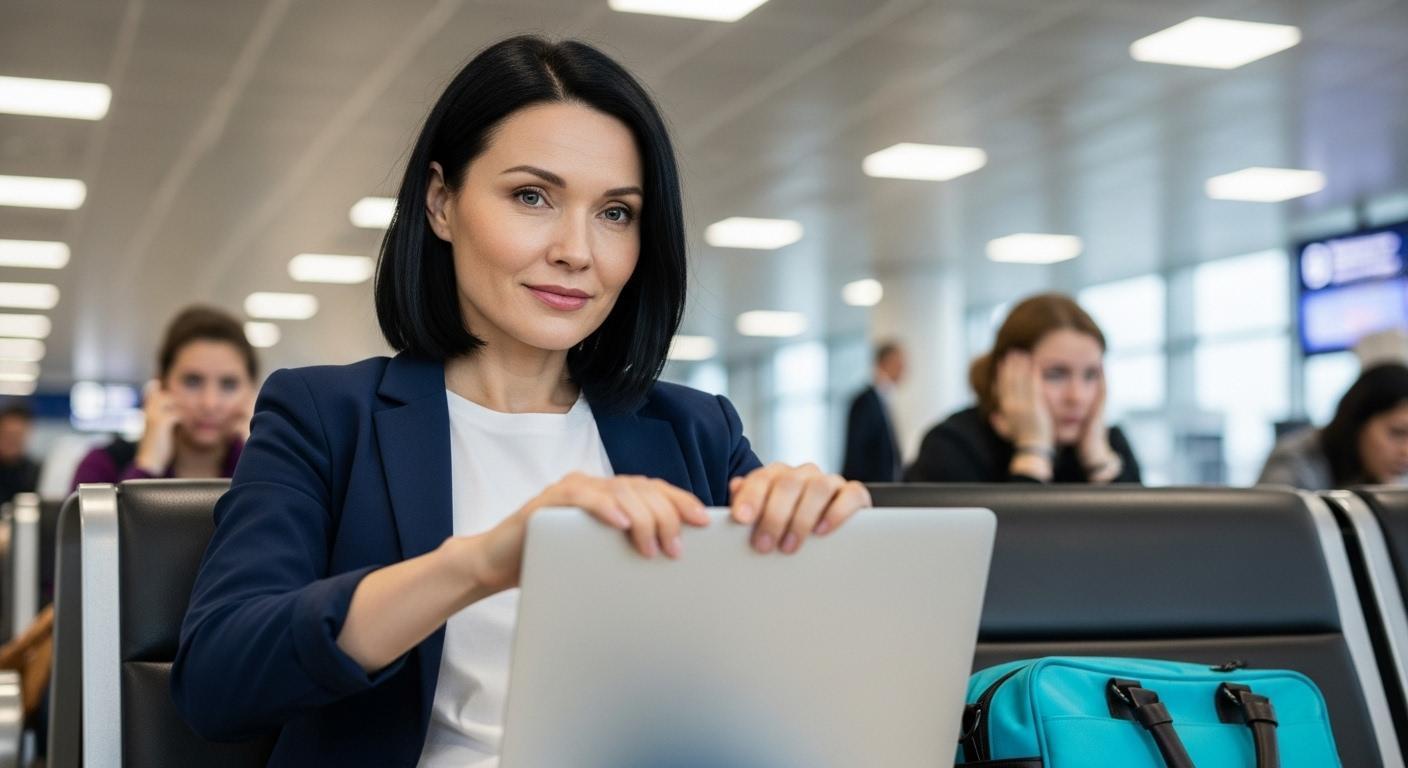JFK Terminal 4, 8:47 AM, October 2025. Your flight to Paris just canceled. The passenger beside you frantically dials customer service, prepared to argue for hours. You close your laptop, knowing a full refund will hit your credit card within seven business days automatically. No phone call required. This is the travel revolution that took effect October 2024, yet 68% of passengers still don’t understand how it works.
The automatic refund rule that changed air travel forever
The U.S. Department of Transportation implemented automatic refund rules on October 28, 2024. Airlines must now refund passengers without being asked when flights are canceled or significantly changed. This represents a fundamental shift from the old system where airlines pushed vouchers and credits over cash refunds.
Transportation Secretary Pete Buttigieg’s consumer protection mandate eliminates the previous patchwork of airline policies. Airlines can no longer set their own refund standards or change them at will. Instead, universal standards apply to all flights to, from, or within the United States.
The regulation addresses a longstanding problem where passengers had to navigate cumbersome processes to request refunds owed to them. Consumer advocates noted airlines were notorious for complicating the refund process by pushing customers toward vouchers or credits.
What triggers an automatic refund in 2025
Flight cancellations automatically qualify for refunds when passengers decline rebooking or alternative compensation. Even a simple flight number change counts as a cancellation under the new rules. Airlines must provide prompt notifications to passengers about their right to a refund.
Flight cancellations and significant changes
Domestic flight delays of 3 hours or more trigger automatic refund eligibility. International flights qualify after 6-hour delays. Airport changes, connection increases, class downgrades, and accessibility reductions for disabled passengers also qualify.
Additional stops added beyond the original booking create refund eligibility. Changes in origin or destination airports qualify regardless of distance. The regulation covers accessibility features not being available when aircraft types change for disabled customers.
The critical requirement: declining alternatives
Airlines may offer rebooking or travel credits as alternatives to refunds. Passengers must formally decline these offers to receive automatic refunds. Accepting alternative transportation voids automatic refund eligibility in most cases.
Airlines can impose deadlines for responding to alternative flight offers. They must clearly notify consumers that not responding by the deadline results in reservation cancellation. Many passengers overlook these critical timing requirements and lose refund opportunities.
The seven-day timeline passengers don’t know about
Credit card refunds must process within 7 business days of the triggering event. Other payment methods require refunds within 20 calendar days. Airlines cannot substitute cash refunds with vouchers unless passengers affirmatively choose alternative compensation.
Credit cards vs. other payment methods
Credit card purchases receive the fastest refund processing at 7 business days maximum. Cash, check, and other payment methods extend to 20 calendar days. Airlines must refund the full amount paid in the original form of payment.
Basic economy tickets receive equal treatment with other fare types for refund eligibility. International carriers must comply when operating flights involving U.S. airports. Charter flights remain explicitly excluded from the regulation scope.
Beyond flight refunds: baggage and ancillary services
Checked baggage delays trigger fee refunds after 12 hours for domestic flights. International baggage delays qualify after 15-30 hours depending on the route. Airlines must automatically refund baggage fees without passenger requests.
Ancillary service refunds cover Wi-Fi, seat selection, and in-flight entertainment when airlines fail to provide them. These refunds process automatically when services are not delivered. Five-year validity applies to any vouchers offered as refund alternatives.
The voucher trap airlines still push
Airlines prefer vouchers over cash refunds despite the new regulations. Consumer watchdog groups report airlines continue using psychological pressure tactics at gates. Gate agents often emphasize voucher benefits while downplaying automatic refund rights.
Travel credits and vouchers were the primary airline response before October 2024. Airlines found ways to turn passenger disruptions into profit opportunities through voucher programs with restrictive terms.
The automatic refund system eliminates negotiation stress for passengers. No more waiting on hold or dealing with customer service representatives trained to offer vouchers first. Airlines must process refunds without passenger intervention when qualifying events occur.
Your questions about automatic flight refunds answered
Do I need to request the refund or is it truly automatic?
Refunds are truly automatic when you decline alternative transportation or compensation. Airlines must process them without forms or phone calls. You simply need to formally decline any rebooking offers to trigger the automatic refund.
What if the airline offers a voucher worth more than my ticket?
Cash refunds remain your legal right regardless of voucher value. Airlines cannot force vouchers on passengers even when offering bonus amounts. The choice remains entirely yours under the Department of Transportation regulations.
How does this compare to European passenger rights?
U.S. rules align with European Regulation EC 261-2004 regarding refund requirements. However, American regulations focus more heavily on automatic processing without passenger initiation. European rules often require passengers to actively request compensation or refunds.
The gate agent announces rebooking options for your canceled Paris flight. Around you, passengers queue anxiously at customer service counters. You politely decline the alternatives, knowing your refund is already processing. Sometimes the smartest travel hack isn’t where you go but knowing the rights that protect you when plans change.
